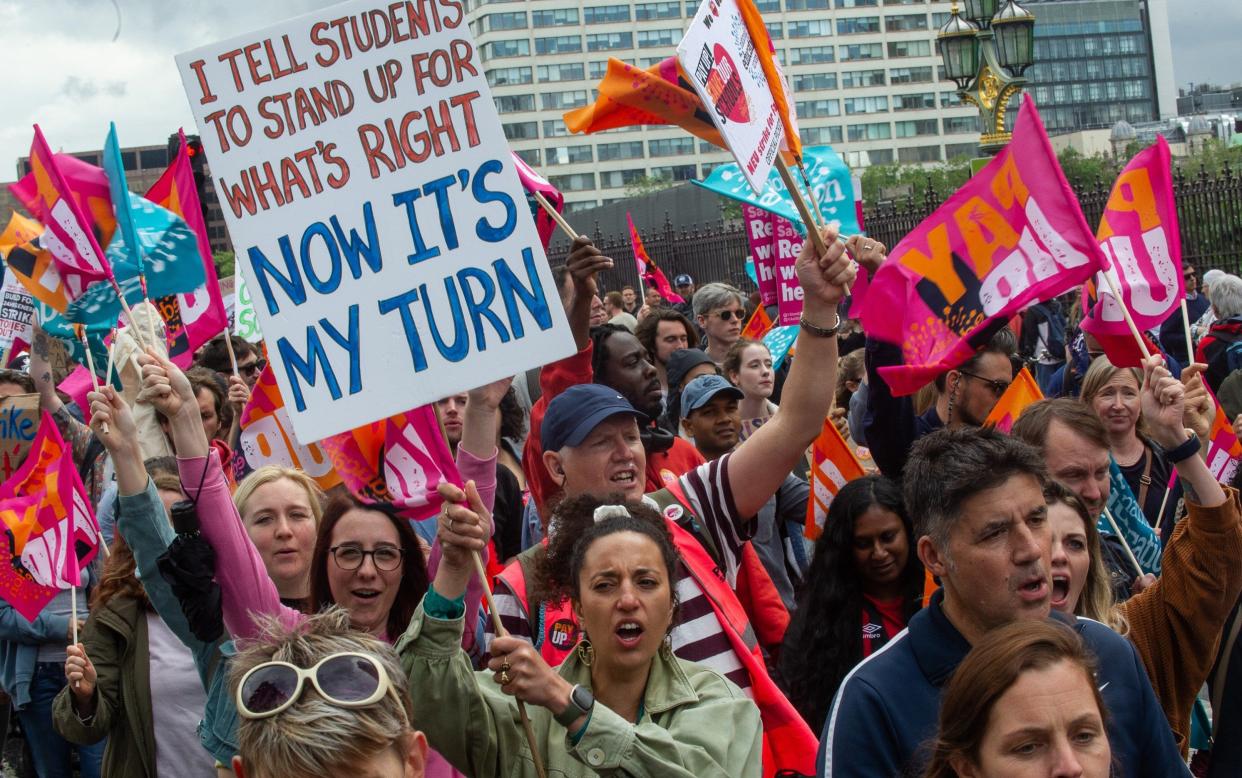Teachers could strike if they do not get above-inflation pay rise

School strikes could be staged in September if teachers do not get an above-inflation pay rise, the leader of the UK’s biggest education union has said.
Daniel Kebede, general secretary of the National Education Union (NEU) said he believes teachers could take industrial action in the autumn term if their demands are not met.
The union leader said that a pay rise offer for 2024-25 must be more than “an increase that is only just above inflation as measured by the RPI [retail price index]”.
UK inflation fell to 4.5 per cent in February, according to the Retail Index Price [RPI] measure.
Mr Kebede said: “We haven’t specified a figure because the inflation outlook is uncertain, but we need a complete step change from Government.”
The NEU leader made the comments at the union’s annual conference in Bournemouth. Delegates will debate an urgent motion on Thursday which states that teachers would be “prepared to act industrially” if Rishi Sunak or Sir Keir Starmer “fail to deliver” on teachers’ pay.

Asked about the potential time frame for strike action, Mr Kebede said: “My view is if there is a decision to go for a formal ballot, we should conduct that over a fairly significant period of time, looking to take action in September.”
The NEU has around 300,000 members in England and Wales.
Results of a preliminary ballot, published last week, showed that 90.3 per cent of NEU members in England who voted in a preliminary ballot said “yes” to strike action, on a turnout of 50.3 per cent.
In Wales, 87.2 per cent of members who voted were in favour of walkouts, with a turnout of 54.1 per cent.
He called on Gillian Keegan, the Education Secretary, to be ready to open up “serious talks” to avoid a “collision course” with the union, adding that the last meeting he had with the Education Secretary was “absolutely abysmal” with “no agenda”.
Last year, the union inflicted months of walkouts on schools and families before calling an end to industrial action when the Government agreed to give teachers a 6.5 per cent pay rise for 2023-24.
The deal meant that teachers on an average classroom salary in England of £41,604 last year received a £2,700 pay rise.
The Government also committed to increase school funding by £4 billion over two years.
Next year’s pay rise must be lower
Mrs Keegan has signalled that next year’s pay uplift must be lower. In government evidence submitted last month to the School Teachers’ Review Body (STRB), the independent body which makes recommendations on pay, the Department for Education suggested that pay awards should return to a “more sustainable level”.
It cited lower inflation forecasts and predictions that unemployment will rise, helping to fill staff vacancies.
Speaking to reporters on Thursday, Mr Kebede said the union’s priority is to “win on the issue of pay and funding”.
Any pay rise must be covered by additional funding, so it does not come out of existing school funding, according to the union, he added.
He said: “The campaign will remain and industrial action will remain a tactic that could be deployed to win on the issue.”
Responding to the comments, a Department for Education spokesman said: “The independent STRB is currently considering evidence for this year’s pay award, unions should engage with this process instead of striking before they even know what the pay recommendations are.”
The spokesman added: “Further strike action would cause more disruption to pupils who have already lost over 25 million school days due to last year’s industrial action.
“Overall school funding is rising to over £60 billion in 2024-25, its highest ever level in real terms per pupil – and teachers have already benefited from two historic pay awards totalling over 12 per cent in just two years.”

